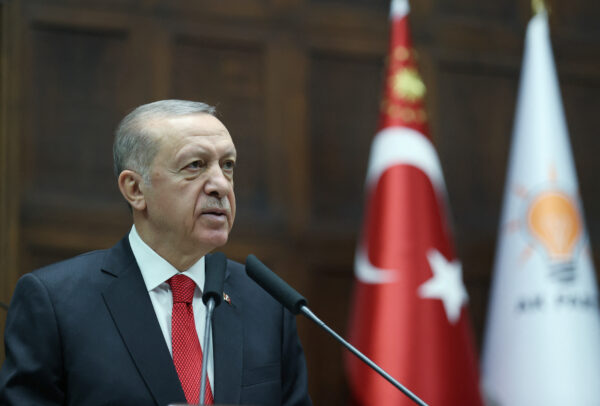The chairman of the U.S. Foreign Relations Committee vowed Friday to hold back the Biden administration’s plan to sell fighter jets to Turkey, unless Ankara improves its human rights record and ceases threatening other NATO allies.
“As I have repeatedly made clear, I strongly oppose the Biden administration’s proposed sale of new F-16 aircraft to Turkey,” Sen. Bob Menendez (D-N.J.) said in a statement. It has been over a year since NATO member Turkey requested in October 2021 to buy 40 U.S.-made F-16 fighters and nearly 80 modernization kits for its existing warplanes. Technical talks between the two sides recently concluded.
The sale of U.S. weapons to NATO ally Turkey became contentious after Ankara acquired Russian-made defense missile systems, triggering U.S. sanctions as well as Turkey’s removal from the F-35 fighter jet program.
The Wall Street Journal first reported on Friday that the Biden administration is considering the potential F-16 transfer, which is worth $20 billion, and has been in touch with Congress for months on an informal basis to win its approval but with no success. The news was later confirmed by other media.
“[Turkish President Tayyip Erdogan] continues to undermine international law, disregard human rights and democratic norms, and engage in alarming and destabilizing behavior in Turkey and against neighboring NATO allies,” Menendez, who has long opposed sending warplanes to Ankara, said on Friday.

The Democratic chair pledged to stand against the deal “until Erdogan ceases his threats, improves his human rights record at home—including by releasing journalists and political opposition—and begins to act like a trusted ally should.”
He further welcomed news of the sale of new F-35 fighter aircraft for Greece, referring to Athens as a “trusted NATO ally” and saying the sale “strengthens our two nations’ abilities to defend shared principles including our collective defense, democracy, human rights and the rule of law.”
Ranking 149th out of 180 countries, according to the Reporters Without Borders world press freedom index for 2022, Turkey passed a highly controversial bill last October that could be used to enforce censorship and quash free speech by putting journalists in jail. A December report by the Committee to Protect Journalists shows Turkey, along with Iran, China, Burma, and Belarus, was found as one of the top jailers during the past year.
Although the State Department said last March that “appropriate” U.S. defense trade ties with Turkey would serve U.S. interests, Congress is unlikely to approve the sale under review as long as Turkey refuses to proceed with the ratification of Sweden and Finland’s NATO membership.
The two countries ended decades of neutrality last May and applied to join NATO in response to Russia’s invasion of Ukraine, but Turkey objected and accused the countries of harboring militants, including from the outlawed Kurdistan Workers’ Party, and demanded steps be taken.

At a press conference on Saturday, Ibrahim Kalin, a spokesman for the Turkish president, and his chief foreign policy advisor, said Washington’s demands relating to the supply of the fighter jets were “endless.”
“If they keep pushing Turkey in other directions with F-16 [and] F-35 sanctions, and then Turkey reacts, they blame Turkey again, then that’s not a fair game,” Kalin said. “It looks like their list of demands is an endless. There’s always something.”
A State Department spokesperson declined Reuters’ request for comment, saying the department does not confirm or comment on proposed arms sales or transfers until the administration has formally requested approval from Congress.
Under U.S. law, Congress can block a sale by passing a resolution of disapproval after a formal notification of a sale, but it is unlikely to do so if President Joe Biden decides to go ahead despite lawmakers’ objections. While Congress has passed such resolutions in the past, it has never mustered the two-thirds majorities needed in both chambers to overcome a presidential veto.
Reuters contributed to this report.









